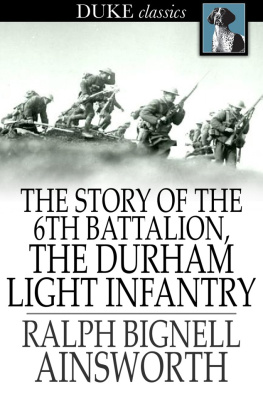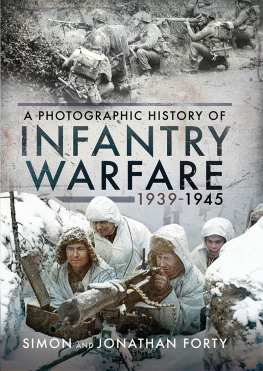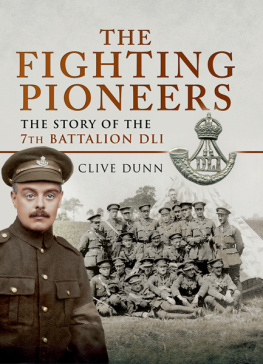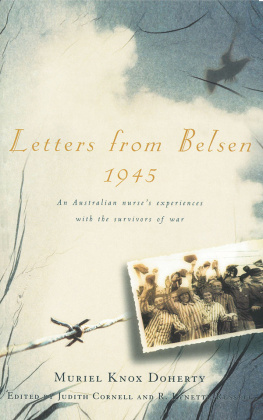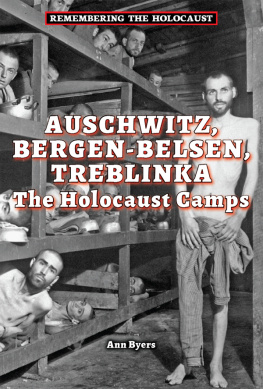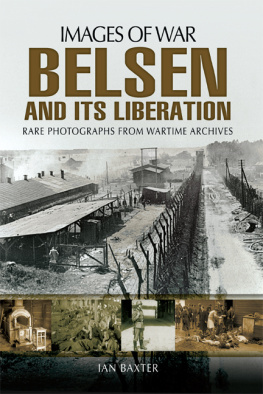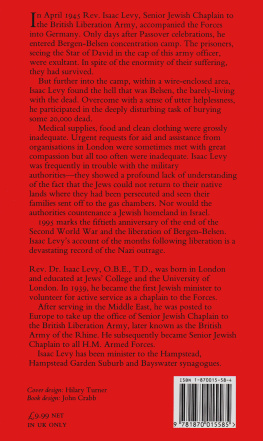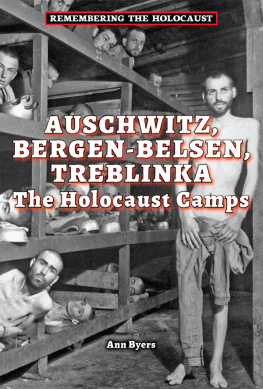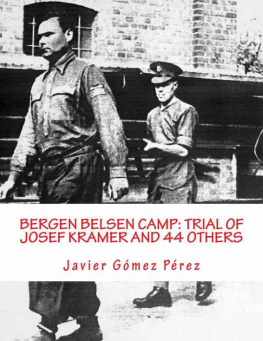
Liberating Belsen
Remembering the Soldiers of the Durham Light Infantry
David Lowther
Sacristy Press
PO Box 612, Durham, DH1 9HT
www.sacristy.co.uk
First published in 2015 by Sacristy Press, Durham
Copyright David Lowther, 2015.
The moral rights of the author have been asserted.
Photographs copyright the photographer, or as indicated.
Maps copyright Kevin Sheehan, 2015.
BBC copyright material reproduced courtesy of the British Broadcasting Corporation. All rights reserved.
All rights reserved. No part of this publication may be reproduced or transmitted in any form or by any means, electronic, mechanical photocopying, documentary, film or in any other format without prior written permission of the publisher.
Every reasonable effort has been made to trace the copyright holders of material reproduced in this book, but if any have been inadvertently overlooked the publisher would be glad to hear from them.
Sacristy Limited, registered in England & Wales, number 7565667
British Library Cataloguing-in-Publication Data
A catalogue record for the book is available from the British Library
Kindle: ISBN 978-1-908381-92-7
ePub: ISBN 978-1-908381-93-4
Contents
List of Photographs
: Regimental badge of the Durham Light Infantry
: Men of the 68th (Durham) Regiment of Foot (Light Infantry) in ordinary dress, during the Crimean War
: The Boer War Memorial at Durham Cathedral
: A Bugler of the Durham Light Infantry during the Korean War, depicted in bronze in Durham Market Place
: The regimental colours hanging in the DLI Chapel in Durham Cathedral
: The DLI Chapel in Durham Cathedral
: Brancepeth Castle in 2015, Regimental Headquarters of the Durham Light Infantry during the Second World War
: A cremation oven at Bergen-Belsen
: The entrance gate to the Auschwitz-Birkenau extermination camp
: An emaciated young boy is dusted with DDT powder to protect him against typhus by a German nurse
: Inside the cleansing station, women and children prepare to bathe
: Medical students at Belsen, in the wards of a converted building round house hospital, looking after patients in 1945
: Wooden cross erected in 1945 by Polish survivors, 2010. Bergen-Belsen Memorial
: Irma Grese standing in the courtyard of the prisoner-of-war cage at Celle with Josef Kramer. Both were convicted of war crimes and sentenced to death
: Signpost on Anne-Frank-Platz, 2011
: Bergen-Belsen Memorial, 2010. Memorial stones, Jewish monument, obelisk and inscription wall
List of Maps
: German Expansion March 1938 to March 1939
: Pre-Second World War Concentration Camps
: Extermination Camps 19411945
: Location of the Bergen-Belsen Concentration Camp
: Route of the 113th Light Anti-Aircraft Regiment (5th Battalion Durham Light Infantry) from Normandy to Belsen, 19441945
Introduction
This book is about a small group of soldiers, some of whom were conscripted to fight in the Second World War while others were either career or territorial (part-time) troops. All received solid training in the requirements of war although, in common with most of Britains land forces, they were underprepared at the start of the conflict. Some of them had seen action in different parts of the world and had faced danger, seen comrades die, retreated and, later, chased the retreating enemy. Nothing, no amount of training, could have prepared them for what some of them discovered on 18 April 1945, less than a month before the end of the war in Europe.
The Second World War began on 1 September 1939, when German forces invaded Poland. It ended just a day over six years later, on 2 September 1945, when the Empire of Japan signed a document of surrender on board United States Ship Missouri, although Japanese forces had ceased fighting on 14 August.
The war was split into two parts: the war in Europe which lasted from September 1939 until May 1945 and the war in the Far East which began with the Japanese attack on the base of the United States Pacific Fleet at Pearl Harbour in the Hawaiian Islands on 7 December 1941. The war in the Far East ended in September 1945. Although there were two separate wars, the Germans, Italians and Japanese (known as the Axis powers) were allies, as were Great Britain, the Soviet Union and the United States. The Soviet Union didnt declare war on Japan until 9 August 1945 because they had already suffered terrible losses in the final attack on Germany. So although a case could be made that there were two wars, both were so intricately linked that the two have, rightly, always been treated as one.
The Second World War was one of the most catastrophic events in recent human history. Other wars have lasted longer: the Hundred Years War between France and England between 1337 and 1453 for example. The Thirty Years War (16181648) resulted in approximately one-third of the citizens of what we now call Germany dying either in battle or from disease or famine. Just twenty years before the outbreak of the Second World War, the Great War (which we now call the First World War) had ended with around ten million soldiers, sailors and airmen losing their lives along with seven million civilians.
All of these events are totally overshadowed by the staggering statistics for the Second World War in which approximately fifty-five million people died. Thats about the same number as the population of England in 2014. The biggest casualty rates were in the Soviet Union (including present-day Russia, Belarus and Ukraine) where twenty million people lost their lives. Fifteen million Chinese died fighting the Japanese. Germany lost five million, Poland three million and the Japanese two and a half million. Britain lost three hundred and sixty thousand in conflict and sixty thousand in air raids. Three hundred thousand US fighting men were killed in action.
Compare these horrifying numbers with the wars of today, Afghanistan for instance, where the total number of the dead is less than three and a half thousand. This total includes just under four hundred and fifty armed forces personnel from Great Britain.
The sheer scale of the Second World War does indeed dwarf all other conflicts. Many died on battlefields, others in the air and thousands at sea. Civilians all over the world perished in air raids and even more from disease and famine. These were the tragic casualties of war. However, of those fifty five million, over six million, a little over ten per cent, were murdered. A majority of these were Jewish, although there were a significant number of political deaths, killings of innocent civilians and minorities. This book is about how the world came to hear about these murders in what later came to be called the Holocaustthe collective extermination of almost six million Jewish men, women and children. It is also about the men who uncovered those monstrous crimes in 1945 and the traumatic effect it had on their lives. You will read the words of some of those men who made the ghastly discoveries and the thoughts of some of the survivors of the Bergen-Belsen concentration camp.


